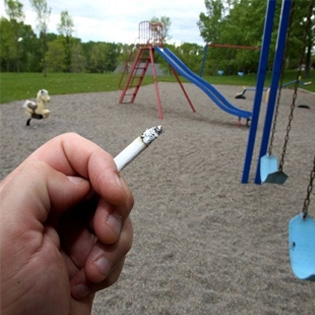
According to a study, the educational level of the mothers is a determining factor that can favor the school success of the children or predispose to school failure.
School failure is one of the ghosts that have long stalked the educational system of our country. To speak of some numbers, in Catalonia it is estimated that there are school failure rates of about 40%.
Given such figures and such a worrying situation, there are several studies that have been done looking for the causes. It has been analyzed the influence on school drop-out of issues such as the number of computers per center, the number of students in a classroom, the hours they are in school, etc. and now that they have decided to look outside the intra-school setting, they have realized that, apparently, much of the fault is the educational level of Spanish families.
The study, developed by Caixa Catalunya together with the Institute of Children and the Urban World (Ciimu) and which was presented yesterday in Madrid, concludes that 73% of the children of university students born in the seventies have studied a career, while of the children of non-university parents, only 20% have arrived at the university.
The proportion of children who dropped out after ESO is 5.6 times higher in homes where the father has primary education than in those where the father has higher education, and is 11.2 times higher when it is the mother who He has primary education compared to mothers who have higher education.
Following these conclusions, the study authors predict a much more promising future than the current situation, since the presence of women in universities has gone from being very insignificant in the sixties to being a majority at the present time.
As the study authors say “We believe that the children of these promotions will be those who do, in the end, reduce the drop-out rates”, which currently stand at 31% compared to 15.2% on average in Europe.
Another fact that the authors of the study comment is that also The fact that most children start school with 3 years or less will be a favorable factor for school success.: “A determining factor since it is more than demonstrated that the little ones who attend preschool education clearly improve their cognitive abilities”. As they comment, parents with higher education take their children to an educational center with one or two years, up to 4.9 times more than parents with primary education.
If you are thinking that the studies of the parents, and especially of the mother, are the only culprits of the failure and dropping out of school, you can rest assured, because there are other factors such as the resources available to our children: “Children who have books at home, who see their parents read, who have a computer, who search the internet with their parents… get better academic results”. In fact, these children earn between 10 and 13 points in math and reading comprehension in the PISA study tests.
Comparing the study with the results obtained by Finland, the educational model to follow, with the best scores in the PISA study, it is observed that if Spanish parents had an educational level similar to that of the parents of Finnish children, Spain would pass to occupy position 24 to position 9 or 10.

I don't know what you think, but the truth is that it seems reasonable to think that the cultural and social level of the parents can have some impact on the socio-cultural level of the children, who ultimately live where their parents do and learn, to a large extent, how they act.
Even so, it does not seem to me (personally) something as decisive as they want to make us see, because what is important at the end of the day is the value given to education at home. I think that the child who is supported from home in their decisions will go further, accompanied when studying and who help solve their doubts, even if the parents are also students, instead of teachers, than the one who, despite having Parents with a high level of education have to study just because their parents are busy in other tasks.
In addition, I did not quite like the idea of "taking the dead" off and blaming school failure only on families, because if, as they say, they are looking at the Finnish model, not only the educational level of parents is different from that of Finnish parents, but also the educational level of schools, the level of teacher training and the treatment children receive in classrooms.
And if you hurry me, the age of entry to school would not be so decisive either, although, in the aforementioned study they comment that it has been shown that the sooner they start, the better in Finland they don't start going to school until 7 years old and they are, as I said, the ones that get the best academic results.
On the other hand, whenever there is talk of "the fault lies with the family", it ends up being the mother's. I already even sympathize with them, because pillan all over.
In short, and despite the nuances that I have found appropriate to make, it can be a small touch of attention to current parents, that we must instill in our children the values we want them to have, but from the performance itself. How will a child read if we tell him to do it while we do zaping?












